Film Name: 无名 / Hidden Blade
Before I went to see Hidden Blade, I was quite apprehensive: on the one hand, it’s Ching Ear’s new film after 6 years since The Wasted Times, so it’s not bad at all in terms of production and cast; on the other hand, word of mouth quickly diverged after the movie’s release, and both the initial reviews and the box office performance weren’t too good.
After watching the movie, I wanted to say “I see”.
01
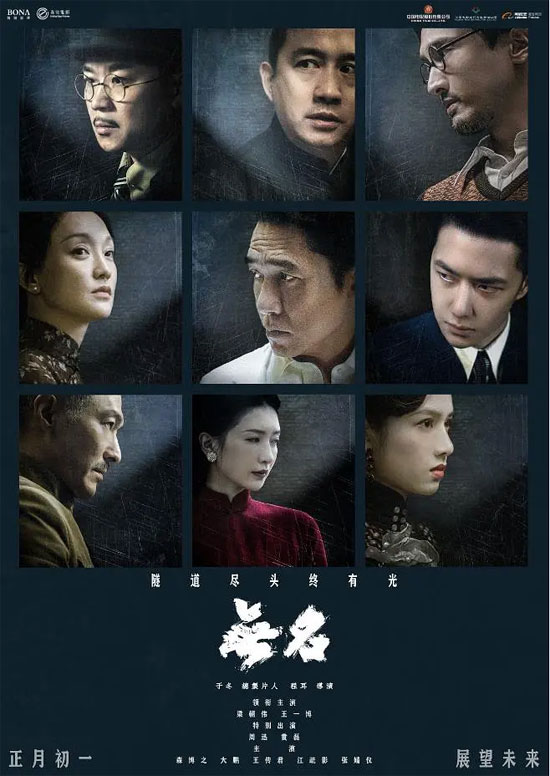
Watching and understanding Hidden Blade is not an easy task, it requires the viewer’s attention and brain to recognize, disassemble and reorganize the content of the film, even for those who have a flexible brain and still enjoy it, they can’t say that they have completely eaten it all up (that’s why a lot of viewers who like the film have gone to the second and third brush in the past two days) – but if you don’t like this set, I’m afraid the experience will be terrible, the film is a typical “not talking properly”. -But for those who don’t like it, I’m afraid it’s a bad experience, as the movie is a typical “bad talker”.
Regardless of the attitude towards this movie, it is normal, after all, this movie is “too cinematic”.
[Friendly reminder: there will be spoilers below.]
Cinema is first and foremost an audio-visual art, so I’m going to go out of my way to praise Hidden Blade for its performance in this regard.
The movie’s graphics are not eye-catching or outstanding, but they have a unique “high class” feel to them that makes them very comfortable to watch.
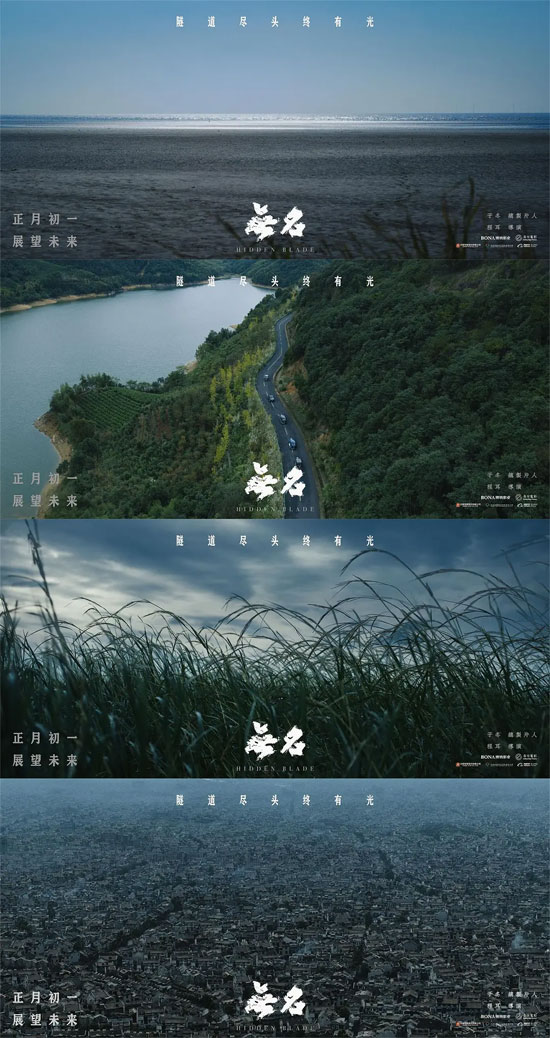
Hidden Blade has a very steady camera, both on the people and on the scenery – strangely enough, it’s often the flickering scenery that I remember more, and it’s the episodes and events related to the people that I remember: the Japanese corpses on the mudflats and the secret agent scavengers, the gunfire by the reeds and the fake executions, the smoke on the city of Canton and the people hiding in the The Man in the Bomb Shelter ……
It’s a weighty composure, with a slightly misplaced use of camera frames that, when finding the right direction and feel, works extremely well.
The best set of scenes, I think, is the brief timeline flashback to 1938, with the war-torn, rain-slicked city of Guangzhou on one side, and the Japanese bombers flying over the blue sea and sky on the other, with one of the pilots even dozing off from the boredom of having seen so much of this beauty.
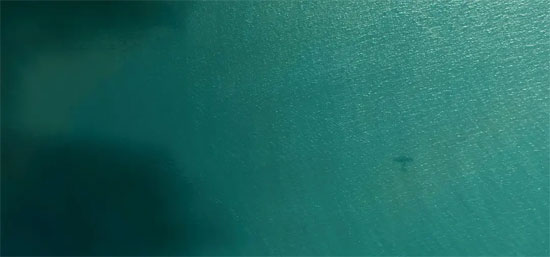
This torn and somewhat bizarre mismatch forms the basis for the construction of the film’s period setting and the positioning of the iniquity of Japan’s war against China.
In this scene, there is a more obvious contrast between the “Roosevelt” Shiba Inu on a Japanese airplane and the nameless crippled dog in an air raid shelter, the former wearing goggles and a plastered flag and strutting around, and the latter, wet and tired, lured by a half-piece of cake to be blown up in the rain.
Later, in the secret service in Shanghai, there were also a group of dogs barking all day long, waiting for Wang Jingwei’s death to do the rats scattering from a sinking ship, these dogs, so that I have a “would rather be a peaceful dog, not as a chaotic people” feeling, but also can not help but think, “how much difference between the chaotic world of the people and the dogs? ”
The protagonists of Hidden Blade are a group of nameless people, some of them are like dogs, while others are living a life like dogs.
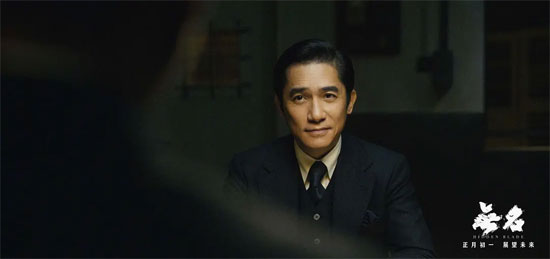
Although the movie has several timelines, including 1938, 1941, 1944, and 1945, the main stage has always been located in Shanghai during the war period, where several forces, including the Japanese, the Wang-Fu government, the Chongqing government, and the Chinese Communist Party, existed in the infamous spy capital.
Director He, Captain Wang and Secretary Ye are the three people who have the heaviest roles after the opening scene, and I once thought that the biggest puzzle of the movie was to guess the real identities and positions of these three Wang pseudo-intelligence officers, but I soon found out that it was not that difficult to guess, and that the real focus of Hidden Blade lies in piecing together a complete story with a lot of clues, as well as savoring all kinds of clues as much as possible to detail the aftertaste. Aftertaste.
Take one of the biggest events in the early part of the movie: Director He quietly released a female agent of the Chongqing government, Ms. Jiang, who returned the favor by handing over a “directory of Japanese dignitaries residing in Shanghai” to the former, and as a Chinese Communist spy, Director He duly released the information and ultimately killed a “royal duke” who had been training in the basic company of the Japanese army. The “Imperial Duke”.
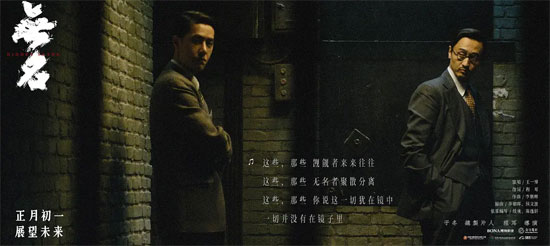
The whole story is very simple to put it bluntly, but the audience first sees that it is Captain Wang and Secretary Ye having breakfast, then they go to the seashore to carry the Japanese corpses, and then slowly releases the crowd’s lingering on Miss Jiang, the Japanese company’s killing of the Chinese laborers, etc., which, in turn, includes many clues, such as the interplay of the Wataribe’s invasion of China when he brought his soldiers to rape, kill and dump the corpses, Captain Wang’s flirting with Miss Jiang, and the brotherly relationship between the Japanese soldiers and pilots. .
Hidden Blade breaks down all the major, minor, minor, and major aspects and reassembles them in a set of sequential logic that spans a wide range of topics but doesn’t completely “fly in the face of the law,” giving the whole story several layers of layering and readability, and a completely different texture.
Let’s say, for example, the same dish, the same ingredients and practices, Cheng Er in the final pot with a completely different coloring and thickening, but also in the presentation of a huge effort, so that the dish in the “color, aroma,” two aspects of a huge improvement.
But this is a theoretical design, the premise requires that the audience is sufficiently immersed in it, the fact is that this kind of play will greatly consume the viewer’s patience and concentration, I can not help but lose focus a few times in the middle of ……
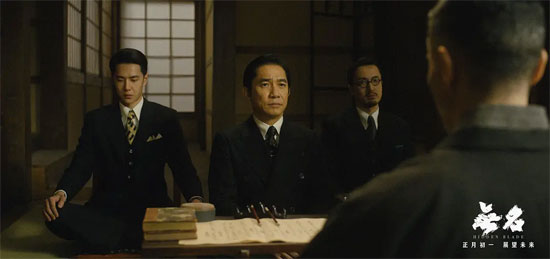
Of course, whether one accepts the film’s storytelling approach or not, it doesn’t detract from the complex gray presentation of human nature, from the choice of political stance to the behavior of the characters, which is what makes Hidden Blade more than a little exasperating for me.
I was most impressed by three characters: Mr. Zhang, the mutineer; Minister Tang, the fence-sitter; and Captain Wang, who “makes a living in politics.
Mr. Zhang, a self-proclaimed weakling who does not adapt to the changing times, “abandons the dark side” and defects to the revolution without waiting for victory. At first glance, he appears to be a ridiculous traitor, but it is his frustration at being rejected by his comrade, Ms. Chen, who has been with him all his life, that finally pushes him to take this step.
Minister Tang mediates between all parties, keeping a hand in everything, he can and the Japanese secret service chief Watanabe blowing his beard and eyes, yesterday was the minister of the Wangfang pseudo-government, and tomorrow is the representative of the Chongqing government, and knows the identity of Director He also does not reveal, he boasts that always invincible, but thus incurring the end of the road.
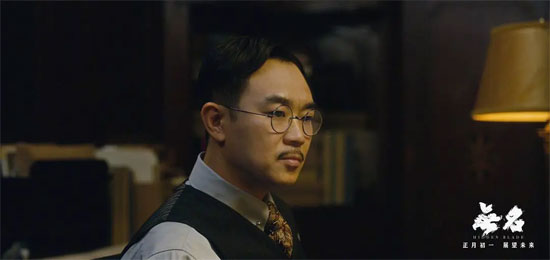
Captain Wang is a realistic egoist, he does not believe in any doctrine, but is good at serving doctrines, he is gluttonous, horny, and a condensed body of ego desires, he should not actively help kill people when Wang and the Japanese are in decline, until he tells Secretary Ye that he killed Miss Fang “because she was a communist”, we know that he has already found a way out of the Chongqing government, but his narrow vision can not see through everything around him. It’s not until he tells Secretary Yip that he killed Ms. Fang “because she was a Communist” that we realize he’s been looking for a way out of the Chongqing government for a long time.
It can be said that Hidden Blade hides too many good ideas under the name of “spy movie”, which can be seen in one step, two steps, or three steps, and all of them can be smoothly accomplished.
The movie also has a lot of interesting details to tell, such as the blood stains on the clothes of Director Ho and Secretary Ye, the drunken shrimps that make the table red with blood during the struggle, and so on, so I won’t expand on these.
In short, Hidden Blade is a movie that “picks on the audience”, and director Cheng Er has already conveyed this message on Zhihu after its release: the audience shouldn’t be underestimated, and I look forward to being interpreted by everyone.
Please specify:Anime Phone Cases » Hidden Blade 2023 Film Review: Is it fun to solve the codebook?